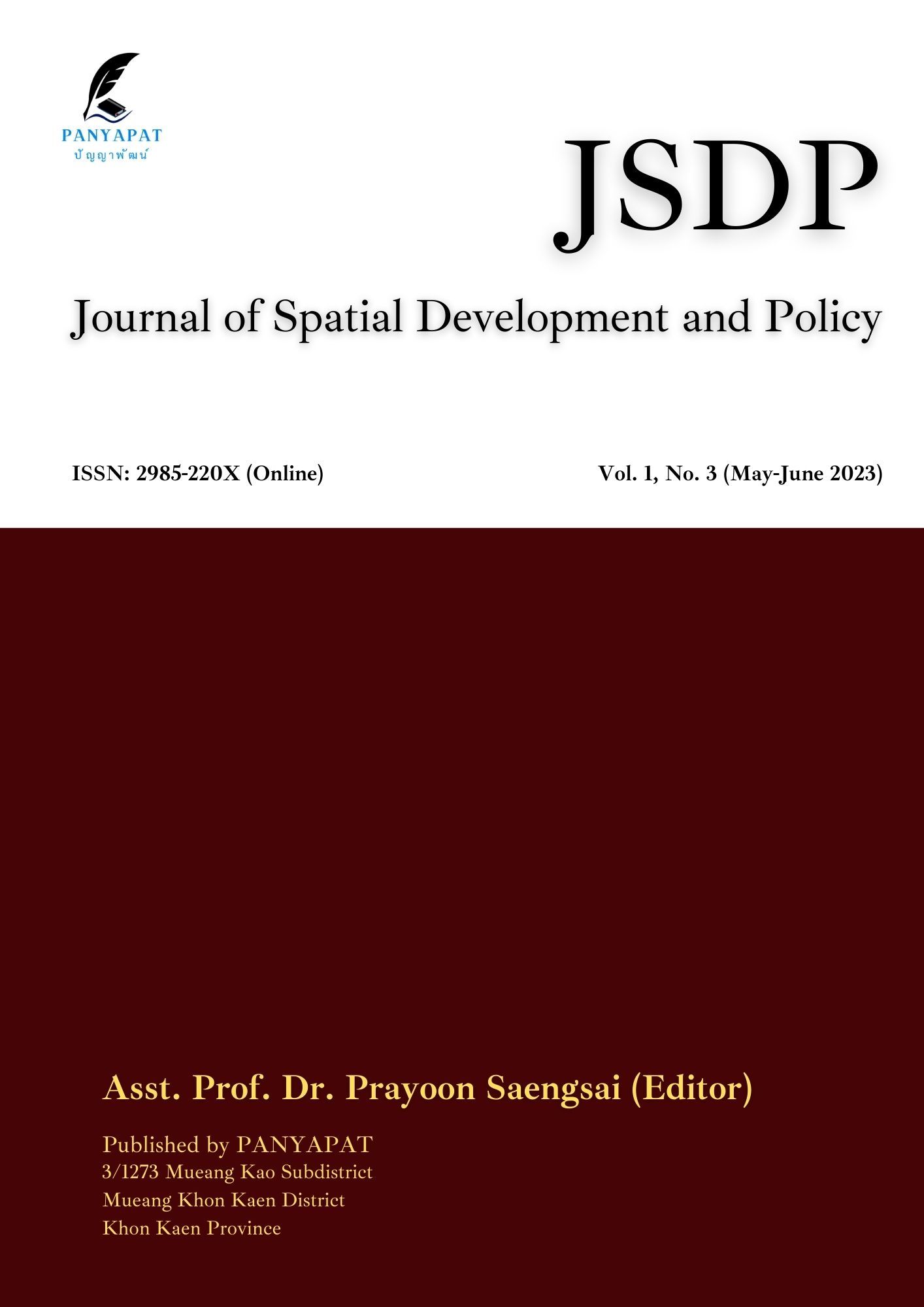Society of the Elderly and the Buddhist Way: A Journey of Wisdom and Compassion
Main Article Content
Abstract
The purpose of this article is to present “Society of the Elderly and the Buddhist Way: A Journey of Wisdom and Compassion”. Elderly individuals experience profound changes in physical, emotional, mental, and social aspects of life. To ensure a high quality of life for the elderly, families play a vital role in promoting their well-being. This includes financial support and facilitating visits to various places, as well as encouraging them to engage in communal activities, stay active, and feel valuable to society. Moreover, the elderly themselves must be aware of adapting, managing expenses, and staying abreast of societal changes. To find happiness in their later years, they should study and understand Buddhist teachings, incorporating these principles into their lives. Practices such as meditation and prayer are essential, fostering a balance in physical, emotional, and social health. However, in old age, the desire to alleviate physical and mental suffering intensifies. As the body weakens, the challenges of various discomforts increase. Being physically unwell without mental peace becomes a struggle in the lives of the elderly. Therefore, it is essential for every sector to promote activities or establish educational programs for the elderly, initiatives that communities must collaborate on. These efforts aim to support lifelong learning, enhance the physical and mental well-being of the elderly, ultimately ensuring their happiness.
Article Details

This work is licensed under a Creative Commons Attribution-NonCommercial-NoDerivatives 4.0 International License.
References
ธิดารัตน์ นวลเดช. (2561). การเปรียบเทียบความสุขของผู้สูงอายุในโรงเรียนผู้สูงอายุกับผู้สูงอายุในชุมชน เขตเทศบาลเมืองหนองปรือ อําเภอบางละมุง จังหวัดชลบุรี. วารสารด้านการบริหารรัฐกิจและการเมือง, 7(1), 150-178.
บรรลุ ศิริพานิช. (2548). คู่มือผู้สูงอายุฉบับสมบูรณ์. กรุงเทพฯ: สภาผู้สูงอายุแห่งประเทศไทย.
ปณิสญา อธิจิตตา. (2564). โรงเรียนผู้สูงอายุกับการสร้างความเข้มแข็งของชุมชน. CRRU Journal of Communication, 4(3), 39-68.
ประคอง อินทรสมบัติ. (2539). การประเมินภาวะสุขภาพในผู้สูงอายุ. รามาธิบดีพยาบาลสาร, 2(3), 44-57.
ประนอม โอทกานนท์ และ จิราพร เกศพิชญวัฒนา. (2554). ชีวิตที่สุขสมบูรณ์ของผู้สูงอายุไทย หลักการ งานวิจัยและบทเรียนจากประสบการณ์. กรุงเทพฯ: จุฬาลงกรณ์มหาวิทยาลัย.
ประภาศรี อนาวัน. (2553). ความต้องการของผู้สูงอายุที่มีต่อประสิทธิภาพการบริหารเบี้ยยังชีพในองค์การบริหารส่วนตำบลเมืองชุม อำเภอเวียงชัย จังหวัดเชียงราย. (บริหารธุรกิจมหาบัณฑิต, มหาวิทยาลัยราชภัฏเชียงราย).
ปิ่นนเรศ กาศอุดม, ฆนรส อภิญญาลังกร, กัญญ์สิริ จันทร์เจริญ และ นิมัสตูรา แว. (2561). บทบาทครอบครัวในการส่งเสริมคุณภาพชีวิตผู้สูงอายุในสถานการณ์การเปลี่ยนแปลง. วารสารเครือข่ายวิทยาลัยพยาบาลและการสาธารณสุขภาคใต้, 5(3), 300-310.
พงษ์ วรพงศ์พิเชษฐ. (2550). พุทธธรรมบำบัด. กรุงเทพฯ: กองแพทย์ทางเลือก กรมการพัฒนาแพทย์แผนไทยและการแพทย์ทางเลือก กระทรวงสาธารณสุข.
พระพรหมคุณาภรณ์ (ป.อ. ปยุตฺโต). (2558). พจนานุกรมพุทธศาสตร์ ฉบับประมวลธรรม (พิมพ์ครั้งที่ 31). กรุงเทพฯ: ผลิธัมม์.
พระมหาไกรวรรณ์ ชินทตตติโย (ปุณขันธ์), พระปลัดสมชาย ปโยโค (ดำเนิน), พระมหาสุรชัย ชยาภิวฑฺฒโน (พุดชู), แม่ชีกุลภรณ์ แก้ววิลัย, โยตะ ชัยวรมันกุล และ ขัตติยา ด้วงสำราญ. (2561). การบูรณาการหลักพุทธธรรมในการเสริมสร้างสุขภาวะผู้สูงอายุขององค์กรชุมชนอำเภอสามพราน จังหวัดนครปฐม. วารสารบัณฑิตศึกษาปริทรรศน์, 14(1), 83-96.
รัถยานภิศ พละศึก และ เบญจวรรณ ถนอมชยธวัช. (2560). ตัวแบบของครอบครัวในการดูแลผู้สูงอายุ. วารสารเครือข่ายวิทยาลัยพยาบาลและการสาธารณสุขภาคใต้, 4(3), 135-150.
วรากรณ์ พูลสวัสดิ์, กล้า สมตระกูล และ ปรารภ แก้วเศษ. (2557). การดูแลผู้สูงอายุวิถีพุทธ. สืบค้น 13 ตุลาคม 2566. จาก https://www.gotoknow.org/posts/566127.
ศรีเรือน แก้วกังวาน. (2553). จิตวิทยาพัฒนาการชีวิตทุกช่วงวัย. กรุงเทพฯ: มหาวิทยาลัยธรรมศาสตร์.
สำนักงานส่งเสริมสุขภาพ กรมอนามัย กระทรวงสาธารณสุข. (2554). คู่มือการส่งเสริมสุขภาพผู้สูงอายุสำหรับบุคลากรสาธารณสุข. กรุงเทพฯ: องค์การสงเคราะห์ทหารผ่านศึก.
สำนักส่งเสริมและพิทักษ์ผู้สูงอายุ. (2553). พระราชบัญญัติผู้สูงอายุ พ.ศ. 2546. สืบค้น 13 ตุลาคม 2566. จาก https://www.dop.go.th/download/laws/regulation_th_20152509163042_1.pdf.
สุรกุล เจนอบรม. (2534). วิทยาการผู้สูงอายุ. กรุงเทพฯ: คณะครุศาสตร์ จุฬาลงกรณ์มหาวิทยาลัย.
Dupuis, K., Kousaie, S., Wittich, W., & Spadafora, P. (2007). Aging Research Across Disciplines: A Student-Mentor Partnership Using the United Nation Principles for Older Person. Educational Gerontology, 33(4), 273-292.
Hanvighurst, R.J., & Albrecht, R. (1953). Older People. New York: Long-mans.
Phalasuek, R. & Thanomchayathawatch, B. (2017). A Family Model for Older People Care. The Southern College Network Journal of Nursing and Public Health, 4(3), 135-150.
Thai Health Promotion Foundation. (2012). Pattern and family structure. Retrieved 13 October 2023. from http://www.thaihealth.or.th/Content/2043.

